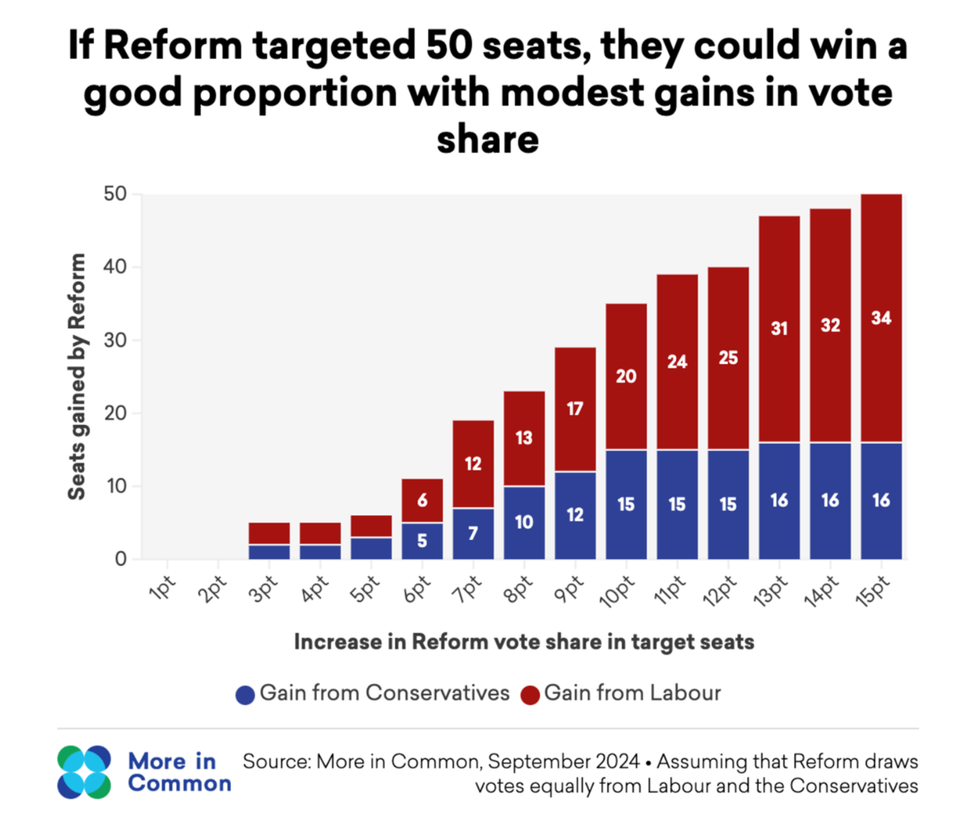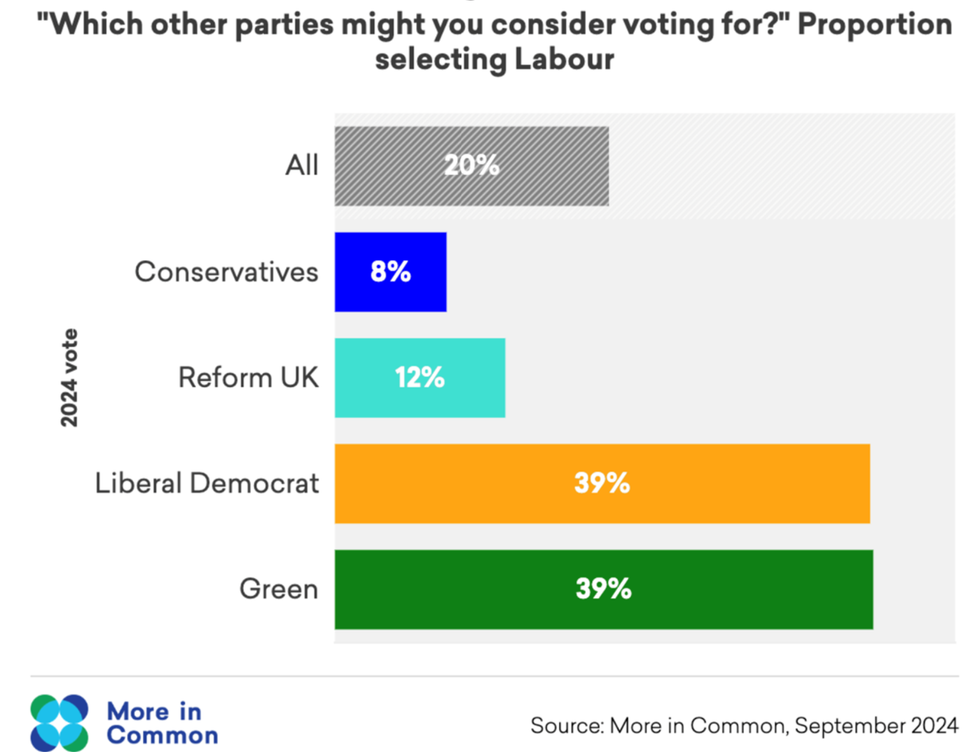More in Common data found 34 of Reform's top 50 target seats are held by Labour
Getty
If Reform efficiently targeted seats and Labour voters at the next general election they could be a significant threat
Don't Miss
Most Read
Trending on GB News
Nigel Farage, leader of Reform UK, said he was going after Labour seats in the next general election, rather than Conservative ones.
Due to the size of Labour’s current majority, a further increase in Reform’s vote share would likely be a bigger problem for the Conservatives than Labour, but that does not mean Labour should ignore the risk of Reform.
According to a More in Common study, if Reform followed a Liberal Democrat strategy of targeting their 50 top performing seats, 34 of these are currently held by Labour and only 16 by the Tories.
They could win all of these with a 15-point vote share increase in those seats.

A More in Common study found if Reform targeted seats like the Lib Dems in the 2024 General Election they could win modest gains in vote share
More in Common
More in Common pointed out that Reform’s national vote share would not need to rise massively for this to be a threat but a focus on efficiency from Reform would meaningfully challenge Labour, especially if their new votes came from Labour rather than Conservative voters.
Speaking to GB News, Farage said there was “no question” Reform’s main opposition is the sitting Government.
Farage said: “It's Labour. There’s no question about it. It is Labour and it is those traditional, working-class seats in South Wales, in the Midlands, in the North of England.
“In many cases, seats that have been Labour since the end of the First World War.
“Where their communities, those old Labour voting communities are so far detached from the North London elite, which the Labour Party has become.”
According to a Nowcast model by Election Maps UK, if another general election were held today, Reform UK would gain five additional seats alongside the five it already holds.
Three of the five seats Reform would win are currently held by Labour MPs and the other two by Conservatives.
Based on opinion polls which gauge voting intentions released since the general election, Reform UK is forecast to take seats in South West Norfolk, Hornchurch and Upminster, Basildon and Billericay, Sittingbourne and Sheppey and Llanelli if an election were held today.
More in Common also found that the Labour Party can’t afford to not increase its vote share at the next General Election.
In a scenario where the Conservatives persuade some non-voters back to vote for them, and Reform voters are tempted back to the Conservatives, the Tories would end up as the largest party with 20 more seats than Labour unless Labour finds new voters.
The Tories could also recover some votes through lower rates of anti-Tory tactical voting which could decrease the efficiency of Labour’s vote and make it easier for the Conservatives to win certain seats.

Some 20 per cent of Labour's non-voters considered voting Labour
More in Common
LATEST FROM MEMBERSHIP:
If the Conservatives can recover in this way, Labour should be aiming for a 36 per cent vote share to keep 350 seats in parliament – even though this would mean a loss of 61 MPs.
This is an achievable goal as the Conservative Party managed to increase their vote share at every election since being elected between 2010 and 2019.
Labour’s best chance of building an efficient 36 per cent coalition requires attracting voters from both sides of the political spectrum.
While only 8 per cent of Conservative voters said they also considered Labour in this election, given the Conservative’s higher vote share, this is a relatively large number of potential votes, located in the most important areas.
Labour could also convince some of the 40 per cent of Liberal Democrat and Green voters who considered voting Labour too.







